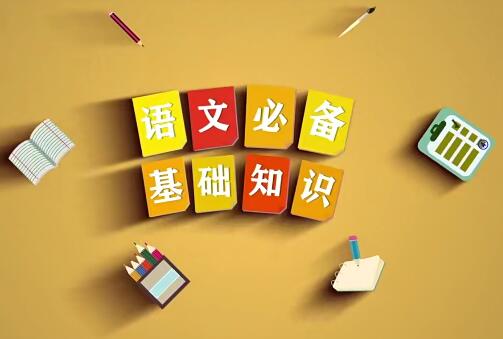小学英语基础知识汇总,内含音标、语法和句法知识
发布于 2021-04-01 17:03 ,所属分类:在线教育信息快讯

小学阶段是孩子们英语打基础的重要阶段!从字母到单词,到句型再到语法,所有的知识都需要孩子们花大量的精力去学习和巩固!
"
为了帮助各位同学更好的学好英语,小何老师特地为孩子们整理了小学英语非常重要的基础知识点,文末可以免费领取高清电子版!
1
基础知识
1.字母:26个字母的大小写
ABCDEFGHIJKLMNOPQRSTUVWXYZ
abcdefghijklmnopqrstuvwxyz
2.语音:元音的发音
五个元音字母:AEIOU
12个单元音:
前元音:[i:] [ɪ] /e/ [æ]
中元音:[ɜ:] [ə]
后元音:[ɑ:] [ɒ] [ɔ:] [u :] [ʊ] [ʌ]
双元音(8个)
合口双元音(5个)[ai] [ei] [au] [əu] [ɔi]
集中双元音(3个) [iə][εə][uə]
3.词汇:词汇量,近反义词
4.句子:大小写,标点符号
2
语法知识
一.名词:名词单复数,名词的格
(一)名词单复数
一般情况,直接加-s,如:book-books, bag-bags, cat-cats, bed-beds
以s. x. sh. ch结尾,加-es,如:bus-buses, box-boxes, brush-brushes, watch-watches
以“辅音字母+y”结尾,变y为i, 再加-es,如:family-families, strawberry-strawberries
以“f或fe”结尾,变f或fe为v, 再加-es,如:knife-knives
不规则名词复数:
man-men, woman-women, policeman-policemen, policewoman-policewomen, mouse-mice
child-children, foot-feet, tooth-teeth, fish-fish, people-people, Chinese-Chinese, Japanese-Japanese
不可数名词的复数就是原型:paper, juice, water, milk, rice, tea
(二)名词的格
有生命的东西的名词所有格:
a) 单数后加 ’s 如: Lucy’s ruler my father’s shirt
b) 以s 结尾的复数名词后加 ’如: his friends’ bags
c) 不以s 结尾的复数后加 ’s children’s shoes
并列名词中,如果把 ’s加在最后一个名词后,表示共有, 如:
Tom and Mike’s car 汤姆和迈克共有的小汽车
要表示所有物不是共有的,应分别在并列名词后加’s
Tom’s and Mike’s cars 汤姆和麦克各自的小汽车
(2)表示无生命东西的名词通常用“ of +名词”来表示所有关系:如:
a picture of the classroom a map of China
二.冠词:不定冠词,定冠词种类:
(1)不定冠词:a / an a unit / an uncle
元音开头的可数名词前用an :
an egg / an apple / an orange / an eraser / an answer / an ID card / an alarm clock / an actor / an actress / an e-mail / an address / an event / an example / an opera / an houran old man / an interesting book / an exciting sport / an action movie / an art lesson /
(2)定冠词:the the egg the plane
2. 用法:
定冠词的用法:
特指某(些)人或某(些)物:The ruler is on the desk.
复述上文提到的人或物:He has a sweater. The sweater is new.
谈话双方都知道的人或物:The boys aren’t at school.
在序数词前:John’s birthday is February the second.
用于固定词组中:in the morning / afternoon / evening
不用冠词的情况:
专有名词前:China is a big country.
名词前有定语:this , that , my , your , some, any , no 等:
This is my baseball.
复数名词表示一类人和事:Monkeys can’t swim. They are teachers.
在节日,日期,月份,季节前:Today is Christmas Day. It’s Sunday.
一日三餐前:We have breakfast at 6:30.
球类 棋类运动前:They often play football after class. He plays chess at home.
* 但乐器前要用定冠词:I play the guitar very well.
学科名称前:My favorite subject is music.
在称呼或头衔的名词前:This is Mr Li.
固定词组中:at noon at night by bus
3
句法
1.陈述句
(1)肯定句:是指用肯定的语气来陈述的句子,如:
I’m a student. She is a doctor. He works in a hospital.
There are four fans in our classroom. He will eat lunch at 12:00. I watched TV yesterday evening.






















![[等级考试] 计算机二级视频教程 全套 公共基础知识+计算机基础知识+office 3件套视频教程](https://static.kouhao8.com/sucaidashi/xkbb/fea5cb739d2bba7fc6b8cc9510c598c7.jpg?x-oss-process=image/format,webp/resize,w_88/crop,w_88,h_88,g_nw)




相关资源